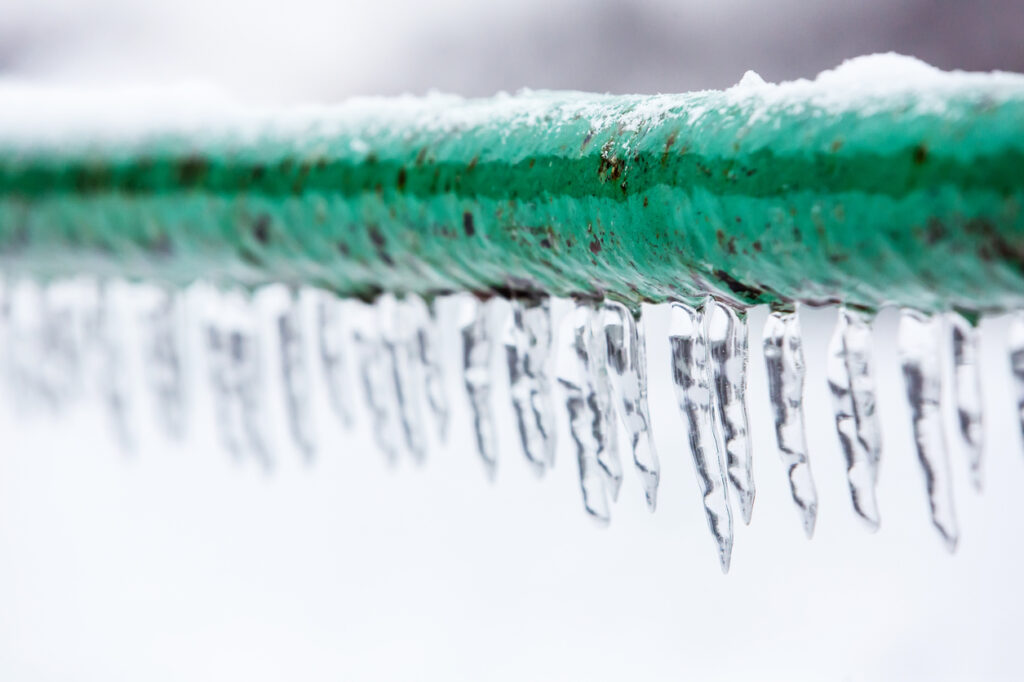Preventing Frozen Pipes: Winter Storm Plumbing & Electrical Tips

As outside temperatures start to plummet in Massachusetts and the North Shore, so do your inside temperatures, putting your home at risk for developing frozen pipes. Frozen pipes can burst and cause irreparable damage. Don’t let winter storms wreak havoc on your home’s heat, water pressure, or electricity supply. Avoid the pitfalls of an unprepared home with these smart plumbing prevention tips.
Keep you and your loved ones safe by taking the steps necessary to prevent frozen pipes and other winter storm plumbing and electrical hazards. Contact Cranney Home Services today at 978-750-6900 for an inspection and consultation to prepare for winter!
Why Should You Winterize Your Home?
The home winterization process is important to keep your home properly insulated. Taking the time to winterize your home offers the following benefits:
- Keeps pipes from freezing and bursting
- Conserves energy costs
- Prevents unnecessary plumbing repairs, saving you money
- Protects you from electrical dangers inherent with winter power outages.
How Do You Prevent Frozen Pipes?
The cold Massachusetts weather is on its way, and it's time to talk about how to prevent frozen pipes. Frozen pipes are more than just an inconvenience — they can suddenly burst at any moment, causing major water damage in your home. Luckily, there are some simple steps you can take to protect yourself. Here are some tips on preventing frozen pipes this winter:
- Invest in a home generator. Winter storms often knock out power; a generator will keep your home warm and prevent pipes from freezing.
- Use insulation tape to wrap your outdoor faucets in a layer of airtight heat tape. This prevents the cold air around them from circulating into the pipe's surrounding environment.
- Get a pipe wrap. This works similarly to wrapping your pipes in insulation tape.
- Tape plastic sheeting over any exterior openings on your home's foundation. These openings include the cracks around your doors and windows as well as vents or open spaces underneath garage doors.
- Remove any exterior house plants. Plants draw water from the soil, which can cause it to freeze and expand. If this happens inside of your pipes, they will burst.
- Make sure that anything electrical is properly insulated. This includes your furnace, fan motor, hot water tank, or any other equipment. The same goes for all your appliances. Heat conducting through wires can cause the surrounding pipes to freeze.
- Keep your home warm with a reliable home heating system. Running your heater keeps you and your home at the temperature it needs to be.
Tips To Prevent Frozen Pipes With a Winter Power Outage
Keeping your home (and pipes) warm when you have access to power makes the process much more manageable. But what do you do if you lose power? How do you keep your home and pipes warm enough to not freeze?
- Run water through your pipes. It doesn’t have to be a stream of water, even a dribble will help keep pipes from freezing.
- Ensure garage doors stay closed. This will protect garage water supply lines.
- Allow warmer air to circulate inside kitchen and bathroom cabinets by opening cabinet doors. This exposes plumbing in those areas to warmer air, which warms the pipes.
- Drain your pipes. Emptying your pipes from any standing water can help prevent them from bursting. Turn your home’s main water shut-off valve to the off position. Turn on every water fixture in your home until water ceases to flow.
- Turn on your home’s generator. If you lose power, a generator can power your heating system to keep your pipes warm.
Signs of Frozen Pipes
Identifying a frozen pipe can help you avoid a pipe burst. To test, turn on a faucet and watch the water pressure. If only a trickle of water comes out, you probably have a frozen pipe. For pipes you can see, like pipes under sinks, look for frost that has accumulated on the outside of the pipe. Frost is a warning sign that the pipe is frozen. Also, if you notice a foul smell coming from the pipe, chances are it is frozen.
What To Do With a Frozen Pipe
Frozen pipes are one of the most frustrating plumbing problems to deal with. They can cause severe damage if not dealt with quickly, so it's essential that you act fast when you see signs or hear noises coming from inside your home suggesting frozen water main lines!
If you have located the frozen pipe/pipes, apply heat to the pipe with an electric heating pad (wrapped around the pipe), an electric hair dryer, or a portable space heater. You can also wrap pipes with towels soaked in hot water. Apply heat until full water pressure returns.
If you can’t locate the frozen area, or if it is not accessible (like behind sheetrock), call a licensed plumber. Calling an expert may seem costly at first glance, but they can save you hours of frustration trying to fix the issue. Licensed and certified plumbers are equipped to locate and thaw frozen pipes to make the job much easier and safer than attempting it on your own. The costs of a pipe bursting will be far greater than any thawing costs you must pay!
Cranney Home Services has been delivering top-quality services to Massachusetts and the North Shore area since 1983. Experience greater peace of mind knowing that your home is protected from the dangers of the winter elements. We offer dependable, quality plumbing solutions that fit your budget and needs.
Our team is ready to answer your call 24/7 with same-day services that can’t be beaten! Contact us online or call 978-750-6900 today to learn more!
North Shore and
Merrimack Valley Areas include:
Salem | Andover | Danvers | Lynnfield | Melrose and surrounding cities














